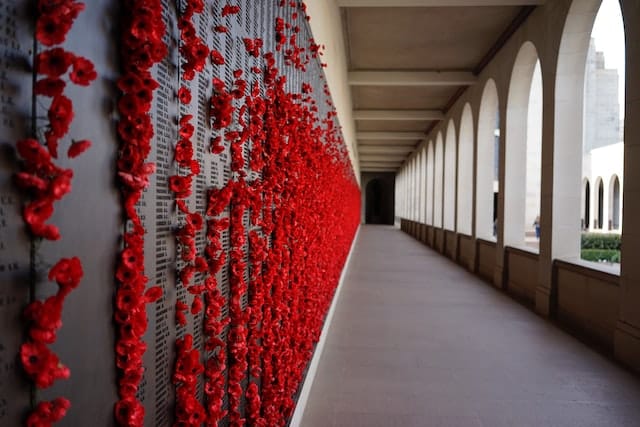Recent figures heard by the Senate reveal that the Australian War Memorial has received more than $830,000 in funding from arms manufacturers over the last three years. The Memorial has maintained long-standing associations with major weapons producers, a fact that has been often criticised as extremely insensitive.
Obtaining the funding figures through budget estimates, Greens Senator David Shoebridge called the AWM’s acceptance of such donations “deeply troubling”.
“The Australian War Memorial should never take money from arms manufacturers who are responsible for the killing of the people the memorial is seeking to commemorate,” asserted Shoebridge.
Boeing was the Memorial’s biggest sponsor, with more than $350,000 donated for three exhibitions. Separately, Boeing also contributed $28,000 to the AWM’s Remembrance Day dinner last year – a contribution slammed as “just plain offensive” by critics.
Lockheed Martin and Northrop Grumman gave $233,636 and $34,000, respectively. Both corporations have enjoyed significant surges in their stocks in the wake of Russia’s invasion of Ukraine.
This encapsulates the sickening crux of the AWM’s funding decisions, as pointed out years ago by the president of the Medical Association for Prevention of War. “For those Australians who have either direct or indirect experience of war,” wrote Sue Wareham back in 2017, “that experience is most often an intensely negative one”.

In contrast to the destruction, grief and trauma individuals carry with them out of war, “For weapons manufacturers…the experience [of war] is a very positive one, characterised by record sales and profits.”
The Association commissioned polling, conducted by Ipsos, which asked a nationally representative sample of Aussies whether they agreed that “the war memorial should not accept money from companies that profit from the sale of weapons”. Almost 60% agreed or strongly agreed.
The Australian War Memorial’s Long Relationship with Weapons Manufacturers
While the Senate figures have put the spotlight back onto the AWM’s association with arms manufacturers, it’s a relationship that has unfortunately been around for quite a while.
Back in 2020, dozens of historians, veterans, and former Memorial staff wrote to the AWM pleading with them not to renew their contract with major weapons producer BAE Systems.
BAE Systems is a British multinational that is best known for their role in the Yemen conflict. It is estimated BAE has sold around £15 billion worth of arms and services to the Saudi-led Coalition. ‘BAE Systems Theatre’ is also the name of the War Memorial’s conferencing facility, a gesture of thanks for their ‘long-term support’ of the AWM.
And in 2015, the Senate heard how Northrop Gunman was granted use of the AWM’s Anzac Hall the year before to “increase its profile” and celebrate its expansion in Australia. Then-director of the Memorial, Brendan Nelson, confirmed he had authorised the event, as well as similar functions by other weapons giants like Lockheed Martin.
Nelson himself took a role with the weapons manufacturer Thales during his directorship, and after stepping down in 2019 worked with Boeing. He was appointed as Chair of the AWM last year.
The current director, Kim Beazley, has been lauded for his advocacy of recognising Australia’s Frontier Wars. But his position on taking money from weapons producers is less admirable. Beazley was formerly on the board of Lockheed Martin, and remains on the board of defence contractor Luerssen Australia.
Historians, veterans, and the majority of Australians have agreed for years on the immorality of the AWM’s relationship with weapons companies. “There is no place for vested interests in a war memorial,” said Dr Wareham back in 2020. In 2023, the Memorial is yet to learn that lesson.
Follow Maddie’s journalism on Twitter.
Sign Up To Our Free Newsletter